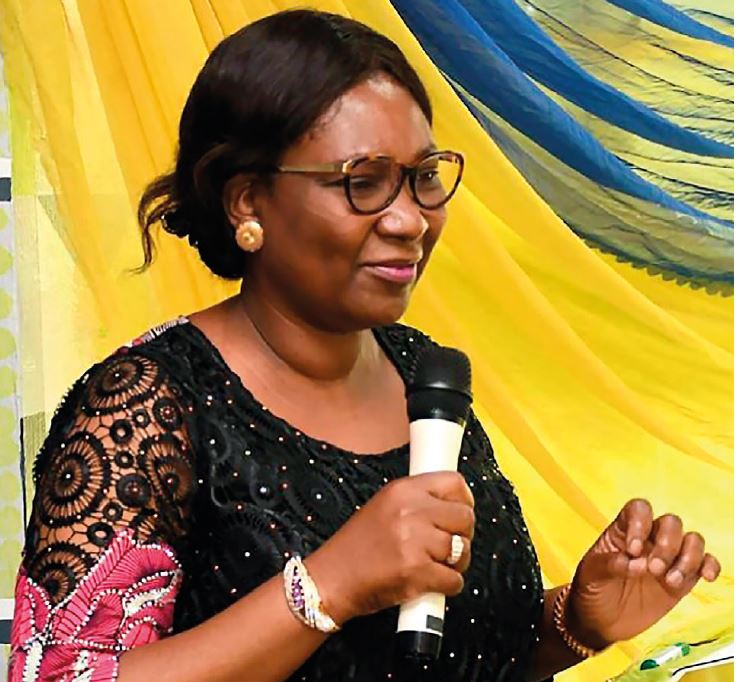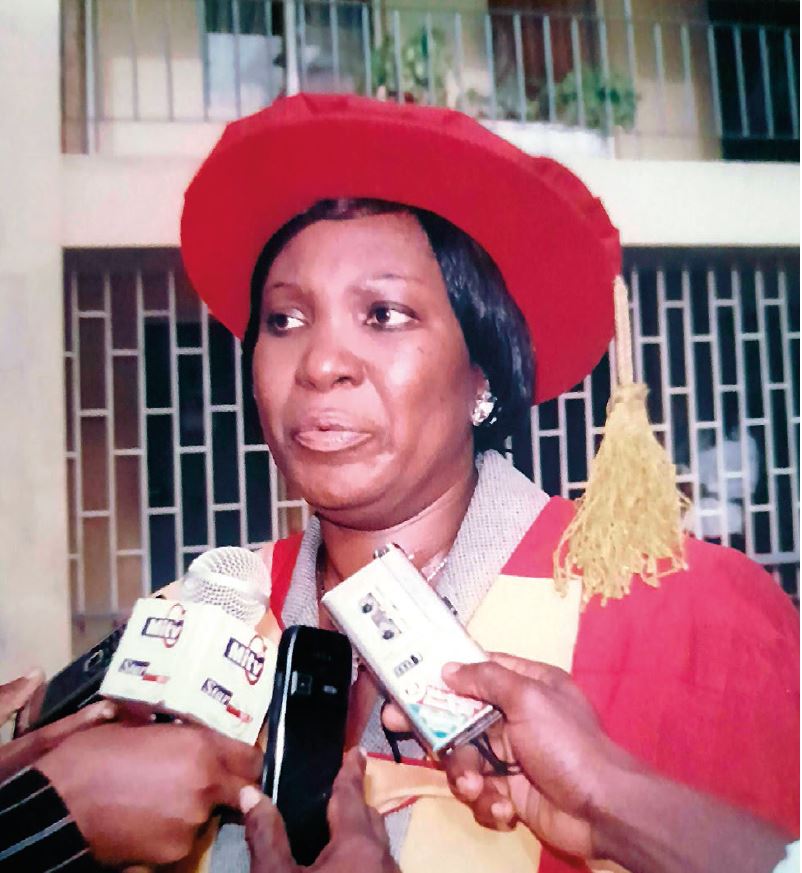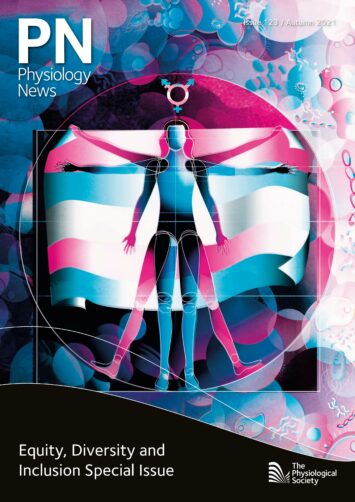
Physiology News Magazine
My life journey as a physiologist in a developing country
Q&A with a Fellow Member
Membership
My life journey as a physiologist in a developing country
Q&A with a Fellow Member
Membership
https://doi.org/10.36866/pn.123.42
Professor Ibiyemi Olatunji-Bello, Lagos State University, Lagos, Nigeria
Professor Ibiyemi Olatunji-Bello was awarded a PhD in Physiology in 1998 at the University of Lagos, Nigeria. She then became First Professor of Physiology at the Lagos State University College of Medicine, Nigeria in 2007, a position she still holds. Since then, she has obtained many academic fellowships and awards. A distinguished scientist, she is known for her brilliant academic work and she has over 56 publications to her credit. Physiology News spoke to Professor Olatunji- Bello to learn more about her life and work.
What do you value most about being a member of The Society? Which member benefits have you found most useful over the years?
I have been a member since the 1990s and one of the first sets of Fellows. The fact that I am a Fellow Member of The Society gives me more recognition in our Physiological Society of Nigeria, places more responsibilities on me as a role model to many
upcoming physiologists and attracts mutual respect from colleagues. The benefits are enormous but the most important to me is the addition of FPhysiol UK to my name.
Other benefits I enjoy from The Physiological Society membership include travel grants, and prizes for outstanding students of physiology. I also have opportunities to present our research for peers to discuss at conferences and seminars. I am especially interested in focused sessions that relate to my areas of research interest, namely medicinal plants, and endocrine and reproductive systems.
What have you learned over the course of your work about how to balance productivity and mental health?
Over the years, I have learnt that relationships matter in order to balance productivity and mental health. You must be friendly and get along well with your colleagues, be cheerful and have a good relationship with God. These things keep you going. The realisation that one can do all things through Christ also helps to blot out impossibilities from my mind.
If I try at first and fail, instead of giving up, I will try again and again until I get results. This is my philosophy, and this has helped my mental health. I am also an ordained pastor so alongside my career as a scientist, I counsel young and old on how to stay in good mental health. We are trained on how to make the believer hopeful and never to give up using verses in the scriptures. Memorising these verses helps the believer cope with experiences.

Have you collaborated across different sectors, and if so, what lessons did you learn?
I have indeed collaborated across sectors, mostly with pharmacologists, pathologists and anatomists and occasionally with educators and botanists. These collaborations enable my team to improve teaching methods and help me identify certain medicinal plants, respectively. In research, you are more able to draw more valid conclusions when you collaborate with other departments and the resulting article is richer and more substantive.
What were the most difficult parts of running of your experiments throughout your career?
The unavailability of state-of-the-art equipment is the bane of research in sub- Saharan Africa. In my university, the state government has tried to upgrade equipment, but steady power or constant electricity is not available. Experimental animals are so expensive, not to mention the cost of feeding and keeping them healthy. Human subjects need inducements in one form or another before they will take part in studies. This is due to the high index of poverty in our country. Even when these are available, technical expertise might not be available to assist in the research. Needless to say, it is not easy to be a successful scientist in Africa.
What is the physiology community like in Nigeria? What do you think other parts of the world can learn from the way things are done in Nigeria? What are the challenges?
We have a Physiological Society of Nigeria (PSN) where all the graduates and lecturers come together annually to discuss current trends in our field and related ones. We are affiliated to the African Association of Physiological Societies (AAPS) whose current president is my mentor Professor Soga Sofola. He supervised my Masters and PhD. Annually PSN also holds a
teaching workshop where we discuss the latest curriculum changes and relevant teaching methods for effective learning.
To flip your question on its head, in Africa, we need to learn from those in developed countries – that is why most of us are members of The Physiological Society. We associate with The Society to improve our lot in the profession. Our challenges are mainly around research funding, and availability of state-of-the-art equipment that makes research more seamless. Training and retraining of members of the recent techniques of research and teaching methods is also a challenge. Finally, digitalisation of the teaching and research processes is still difficult in the remote parts of the country because of lack of good internet facilities.
What do you enjoy about the sector you work in, and what is challenging about it?
I really enjoy teaching. I could stand for hours teaching and you will never see a student asleep or tired. I know I am a very effective and enthusiastic teacher. Feedback from our students also confirms this. One year, I was awarded second place in physiology in my university after my teacher, the late Professor Solomon Ade Adigun.
There was a time when we had many students in medicine, dentistry, pharmacy, physiotherapy, pharmacology and physiology. Teaching was not a problem because we had a big auditorium and there was a projector, but examinations were difficult. I sometimes had to read about 500 scripts of several long essays each, some with indecipherable handwriting. I was devastated. That was the only time I wished I was not a lecturer. Thank God the Nigerian Universities Commission now has a strict accreditation policy that has helped in controlling the number of students in a particular course.

What are the main challenges you’ve encountered during your career?
As students, we were discriminated against by the medical community who thought we could amount to nothing good. This affected some of us and as a result, very few of us were determined from the outset to do our PhD and become relevant in the academic community. Now we have the Students’ Physiological Association of Nigeria in each university. This has helped to mitigate the discrimination. This body has helped improve the mental state of our students among their medical counterparts.
It was quite difficult for me being female to compete with our male counterparts as a lecturer. As you know, you either publish or perish if you want to advance in academia, and I had extra work I needed to do at home as a mother and wife. The sleepless nights of writing my research articles and the many rejections and revision requests by scientific peer-reviewed journals were difficult moments in my career trajectory. I was encouraged by the acceptances and kept on, sticking to my life philosophy, which is to never give up.
